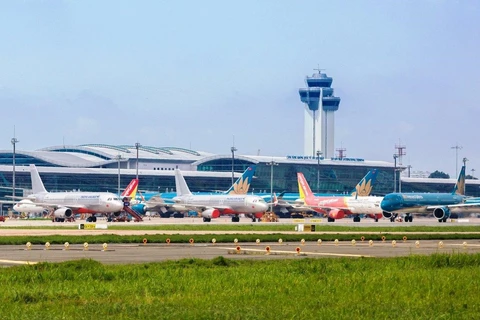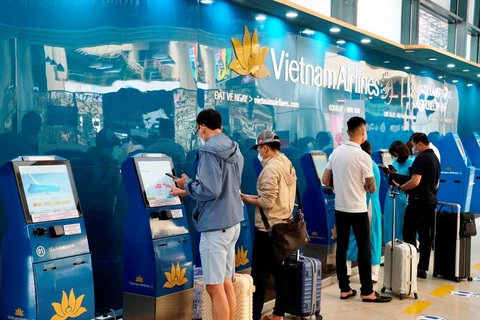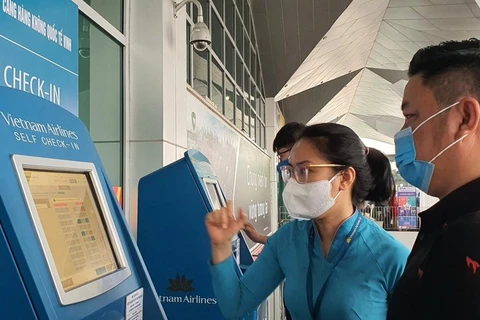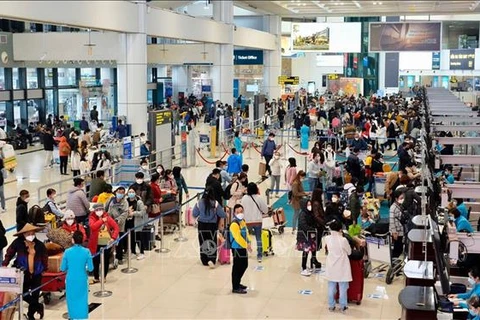 Pilot use of chip-based ID cards for fast check-in for some domestic flights may begin from April next year, according to the Civil Aviation Authority of Vietnam (CAAV). (Photo: VNA)
Pilot use of chip-based ID cards for fast check-in for some domestic flights may begin from April next year, according to the Civil Aviation Authority of Vietnam (CAAV). (Photo: VNA) Hanoi (VNA) – Pilot use of chip-based ID cards for fast check-in for some domestic flights may begin from April next year, according to the Civil Aviation Authority of Vietnam (CAAV).
The decision was reached at a meeting on October 25 between CAAV and relevant agencies on the matter.
The pilot scheme is expected to be applied for a number of domestic flights for six months before a final decision is made, the CAAV said.
The scheme will be carried out at Hanoi’s Noi Bai International Airport. Accordingly, there will be an exclusive lane in the check-in and security control areas for passengers using chip-based ID cards, where devices using facial recognition screening technology will be used to verify the identity of passengers instead of airport staff.
According to CAAV, the application of this technology is essential as it will help reduce the risk of using forged papers and overloading at check-in counters at airports while making it more convenient for passengers.
In related news, Dinh Viet Thang, director of CAAV said that in the first ten months of 2022, the total number of passengers traveling through Vietnam airports topped 81 million.
It is expected that the total number of passengers traveling through Vietnam airports would be around 100 million this year, equaling to around 83% of the pre-COVID-19 pandemic figure with 120 million passengers in 2019.
According to Thang, the domestic aviation market enjoyed good growth while for the international market, the recovery reached about 50% as some key markets, especially China, are facing obstacles due to the pandemic. Other markets including the Republic of Korea and Japan have reopened their flight but the travel demand remains low./.























